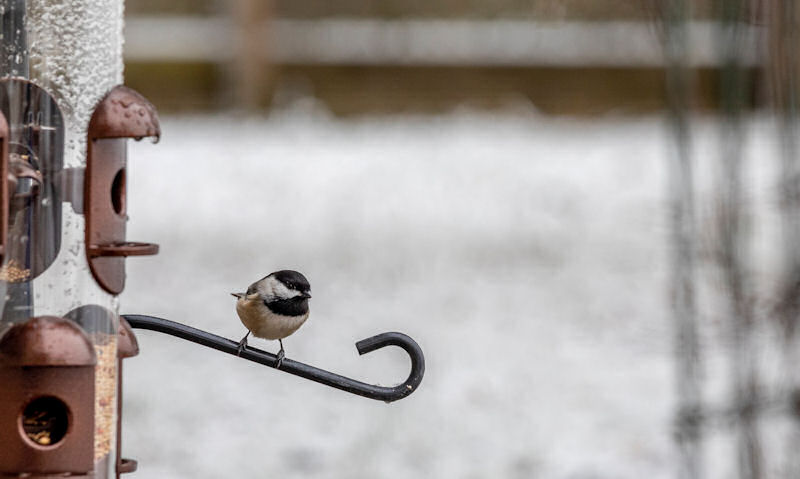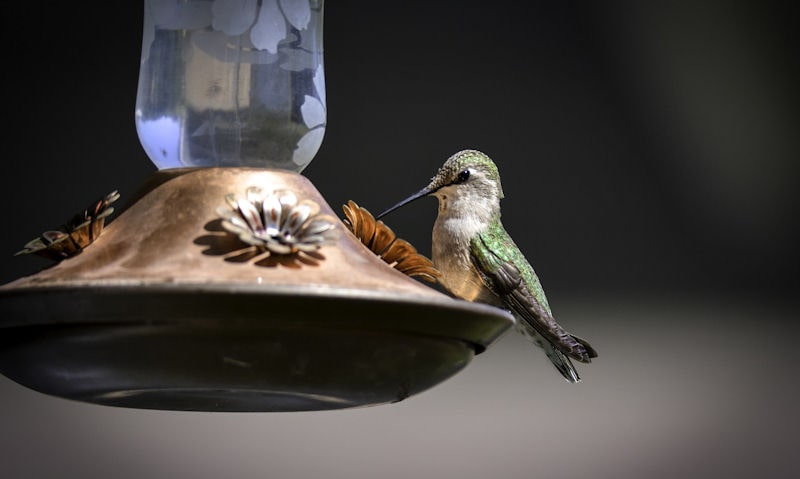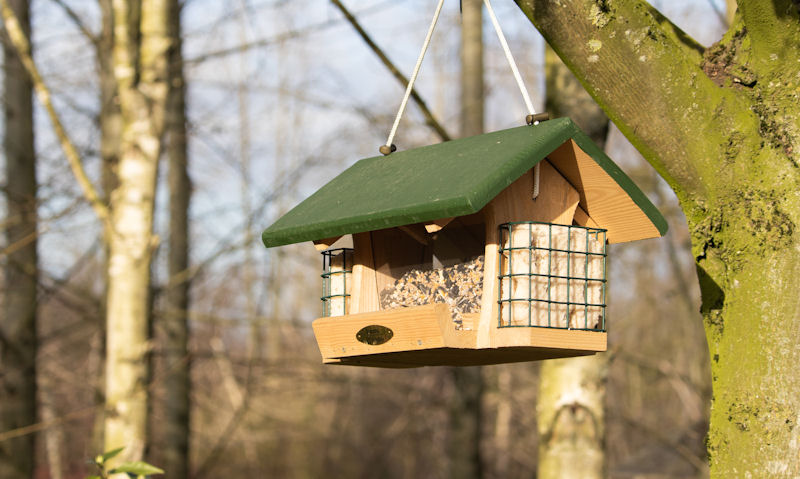Do birds come to feeders in the rain
To witness wild bird behavior at the bird feeders next time it rains, observe as fewer birds use a feeder, while those that do can be seen to ruffle up their feathers.
Birds do come to bird feeders in the rain as a light shower can do no harm, and while birds can still feed in heavy rain, fewer birds choose not to. Bird feeder birds continue as normal in light rain because the conditions remain calm, while a heavier downpour can see windier conditions, which birds don't like.
Next time it rains poke your head out of the window to see how birds respond to the wet conditions that have befallen on them.
Light rain as you would see can result in wild birds coming to bird feeders as they normally do - right on time in the early morning, up until the early evening - or before it gets gets dark.
How to feed birds in wet weather can only rely on a bird feeder, with birds seen to use it as they always have, providing the weather isn't too severe.
Example of that is far fewer birds prefer to delay feeding in heavy downpours; thus some birds can continue to feed, while seen to ruffle their feathers to shake off access water - just as they do when they bathe in a bird bath.
Birds can fly under running water coming out of a tap, or a bird bath fountain, so birds will have no difficulty coming to bird feeders when it rains.
What can stop birds coming to feeders in the rain is when it does indeed rain, often the wind can pick up which birds don't like. While they also find it hard to land on a swinging bird feeder as it hangs up on its bracket or branch.
Expect fewer birds in a severe downpour then while most birds are happy to feed as normally do in light rain.
You can help by making sure as many birds can continue to feed as its essential to their survival - by placing bird feeders under cover and out of the rain - such as under a tree or the underhang of a roof.
Birds feed in light rain
You know what, even the smelliest, most fragile wild birds who frequent our yards can come to bird feeders in the rain, even when its at its heaviest.
However its likely wild birds will only come to a bird feeder in light rain as its safer, visibility is greater and in many cases, its less windy.
Birds will come to a bird feeder in the rain, but only if its light rain at the time.
Next time it rains simply look out of your window at a time when most birds come to your bird feeders, then make a note of the differences between when its dry, compared to when it rains.
Fewer birds may be present on any given bird feeder although they will feed just as they always do.
Birds do fly less when it rains although the birds who frequent your yard, and therefore your bird feeders will only be a hop, skip and a jump away.
With that in mind there's no tackling heavy rain or windy conditions when they are only near by in nests or perched in trees - thus a visit to the bird feeder in light rain can be achieved with no difficulty at all.
Delayed until heavy rain eases up
While most common backyard birds can be seen to get ruffled feathers due to getting soaked whilst they use bird feeders in the rain, heavy rain may cause birds to delay feeding times.
Hummingbirds can be seen while hovering to duck under a heavy, flowing tap or fountain water in the yard to damp their feathers to preen, or indeed hydrate in the process. As you can imagine then, heavy rain is easy work in comparison.
That isn't to say birds like to come to feeders in the rain, as fewer don't - which is why bird feeders appear to be abandoned in heavy rain.
Contributing factor why birds don't come to bird feeders as frequently in heavy rain, is severe conditions that cause heavy rains means the wind has picked up.
Heavy rain is basically a storm thus birds can be seen to avoid these often turbulent conditions, while continuing to feed once things calm down.
Wind can continue to rain if its light but if the wind as all but gone then birds may begin to come back to feeders if they haven't had their fill of food for the day.
Bird feeders do keep food dry
You know what as bird feeders can get wet, so can the bird food trapped inside them, which in turn can reduce its lifespan to only a day or two before it begins to germinate now it as got wet.
While birds will use your bird feeders less in wet conditions, and especially when its raining - a whole day wasted can see more bird food in feeders having to be thrown out.
For the most part birds will come to bird feeders in the rain although are less likely to feed if its mean the bird food is in poor condition.
Birds can continue to feed in your yard like they've always have, although their behavior can change, which requires you to be more pro-active in times of long spells of wet weather.
In only a few short light rain spells here and there there's going to be no issues, its only when there's days or weeks of continuous rainfall will it mean you'd have to replace bird food quite often - while proceeding to do your best to keep rain off bird food.
How to feed birds in wet weather is only with use of bird feeders, though if you have an opportunity to locate bird feeders under cover of a tree or building, then proceed to.
Cover can benefit birds
Bird feeders can continue to be used by most birds who use them in light rain only, while a period of an heavy storm can postpone proceedings.
Feeders can be left out in the rain in the meantime as birds need to feed when they can, as foraging is what they do all day as a matter to stay alive.
However birds can relay eating for far longer than they have to, which is why you can help the more agile birds by creating a bird feeding station under cover.
How this will help is to first keep the bird feeders dry, which will keep the bird food dry; then there's allowing most bird feeder birds to come along to feed out of the bird feeder, as they always have.
Grand location to hang bird feeders is in a tree which can offer amazing natural cover.
If there's no tree in your yard perhaps you can use the side of the house or outbuilding that appears to stay driest - if not the roof overhang can offer some coverage.
What I am getting at is cover, which means keeping birds dry as they use the bird feeder, can allow birds to feed off any bird feeder as they normally do, while encouraging many birds who prefer to wait until the rain stops... which can sometimes take an eternity.
Conclusion
Birds do come to bird feeders in the rain even though it will be fewer birds who bother, as they like to wait until the rough conditions calm down.
With that in mind most birds can happily feed off a bird feeder when it rains, although the rain will have to be light.
Birds can forage in quite rough, stormy conditions as they must eat their body weight in berries, nuts, seeds or suet at bird feeders to stay healthy and alive, thus are forced to feed in all weather conditions.
Heavy rain can see far fewer birds converging on the bird feeders like they normally do, while these same birds can be found under cover foraging in the wild like they usually would - just to stay out of the rain if feeding on feeders.
Strong, intense rainfall can postpone feeding time for every bird who normally uses your bird feeders, although for the most part some will turn up without fail.
To be sure as many common backyard birds can continue to feed as they do, you can at least position the bird feeder pole under cover - or why not hang bird feeders up a tree for more natural rain cover.
Cover can benefit birds in that they can still come to feeders without dealing with severe rainfall.
Birds do come to feeders in the rain although you will see fewer in heavy rain compared to in a light drizzle.


